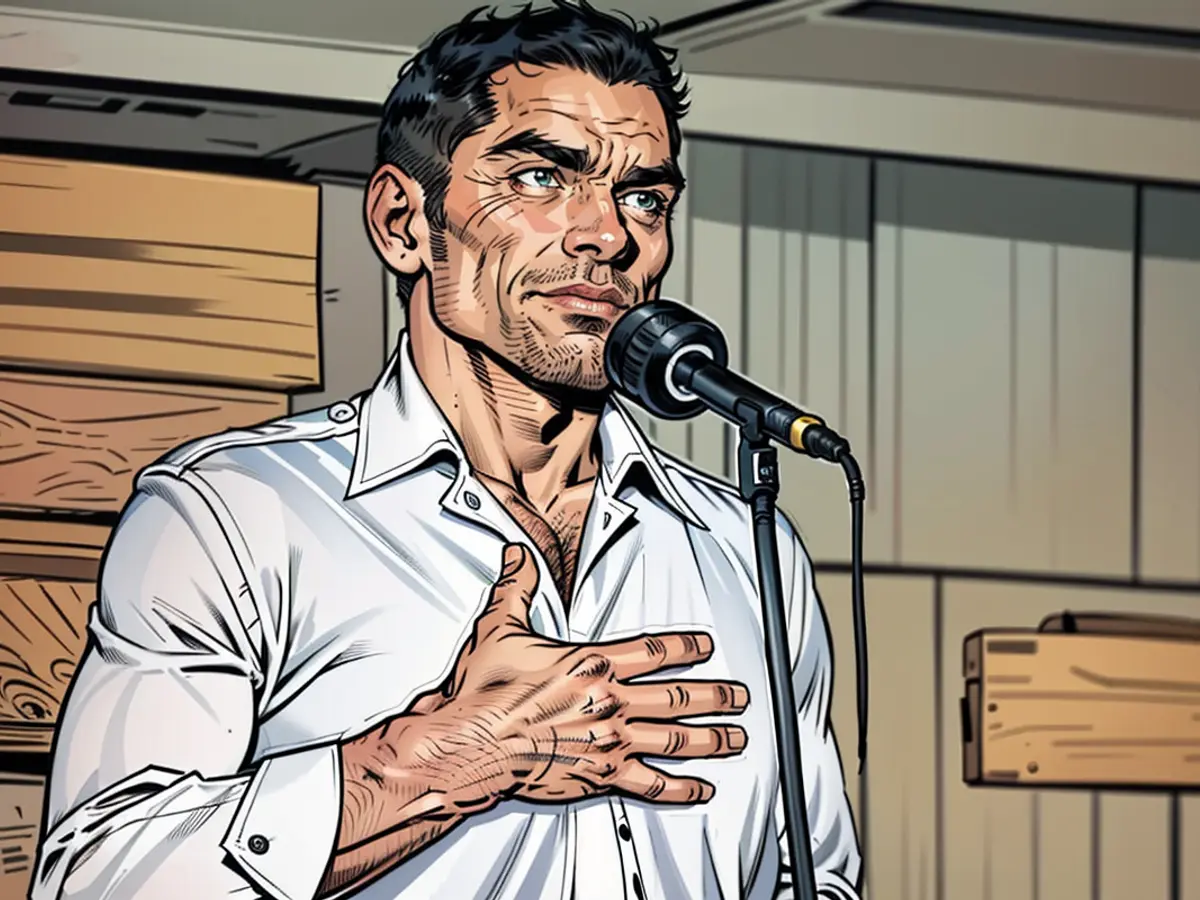There could potentially be a stunning revelation.
Following the Thuringia state elections, complicated coalition talks are forthcoming. While CDU politician Prien, on Lanz, clarifies why her party refuses to collaborate with The Left, they are still examining potential options for their new leader.
The CDU has initiated initial discussions with the SPD for a potential coalition, with the winning party, AfD, reportedly yet to engage in negotiations with other parties. Given the majorities, coalition negotiations will inevitably be challenging. However, the need for a new form of Thuringian politics in the Erfurt parliament may arise from these circumstances. On Tuesday evening, the ZDF talk show "Markus Lanz" will discuss the state's future in Thuringia with the deputy CDU chairwoman Karin Prien and the possible new leader of The Left, Jan van Aken.
One thing is certain: the CDU plans to uphold its incompatibility resolution, passed at a federal conference in 2018. This means refraining from any coalition or cooperation with AfD and The Left. CDU politician Karin Prien confirmed this during the Markus Lanz show.
She characterized the election outcome in Thuringia as "a significant turning point in German history: a far-right party has secured over 30 percent of the vote." At the same time, she highlighted that the traffic light parties could only amass around 10 percent of the voter base. "The CDU is in a challenging position," Prien noted. The CDU's challenge lies in the fact that it is the only mid-spectrum party still playing a substantial role in Thuringia. The state expects its elected representatives to strive for solutions. "This will undoubtedly be difficult, given that all parties involved are not attractive options," Prien admitted.
The deliberations about the viability of these configurations will be later addressed in the show by Jan van Aken from The Left. "This is a significant lesson from numerous peace negotiations over the last thirty to forty years – you can't predict the outcome at the beginning. I understand: this is not a peace negotiation in Thuringia. But perhaps we will be surprised with the model that emerges. Right now, we're merely discussing coalitions or tolerances. There could be different approaches that I'm not considering yet."
Controversy over incompatibility resolution
Karin Prien, on Lanz, primarily defends the CDU's incompatibility resolution regarding collaboration with AfD and The Left. "We're speaking about the AfD of Björn Höcke; you can label him a Nazi in Germany without consequences," Prien explains, justifying the CDU's reluctance to collaborate with the AfD. However, the assertion that Höcke can be referred to as a Nazi is not accurate. In fact, the Administrative Court in Meiningen decided in 2019 that labeling Höcke as a fascist is a value judgment based on factual evidence and protected by free speech. Whether Höcke can also be labeled a Nazi remains unresolved in the legal context, as numerous lawsuits in which Höcke was referred to as such have been dismissed in recent years.
At the Left party, Prien seems to have concerns beyond the CDU's incompatibility resolution. "We're dealing with a Left party that has governed in Thuringia for years and was resoundingly defeated at the polls, which should also be emphasized." However, the same applies to the SPD.
Journalist Kerstin Münstermann from the Rheinische Post finds the CDU's incompatibility resolution inapplicable when it comes to the Left party in Thuringia. Prien acknowledges that she worked effectively with her Thuringian counterpart as education minister in Schleswig-Holstein. Jan van Aken points out that Minister President Bodo Ramelow of the Left party frequently votes with the CDU during the crisis conferences of the ministry presidents. Münstermann finds it perplexing that the CDU has no problem engaging in negotiations with former left-wing figures, but now views them negatively when they belong to the BSW.
"But they've simply repainted themselves," Prien emphasized. Many Thuringians struggled under the SED, the predecessor party of the Left, in the DDR. Therefore, she notes, "I have no sympathy for Frau Wagenknecht's and her theories. None at all. But a successor party to the SED would be a challenge for many people." There are also parallels with the BSW: "We're talking about a BSW that takes positions different from those of the Left on social and migration-related issues. Perhaps it's even more right-wing populist than left-wing populist."
Jan van Aken of the Left party contends for the right to asylum and against deportations during the show. Nevertheless, the Left could assist a CDU-led coalition in reaching the required majority, as they currently trail by one vote. Former Minister President Bodo Ramelow has announced in various interviews that he could imagine supporting a CDU-led coalition in the Thuringian parliament and thus aiding them in attaining the necessary majority.
However, the CDU has yet to respond to this proposal.
The CDU, upholding its incompatibility resolution, has ruled out any coalition or collaboration with The Left, as stated by Karin Prien on Markus Lanz. The Commission, comprising representatives from various political parties, will need to navigate these complex coalition talks in Thuringia, considering the CDU's stance and potential options for a new leader.








